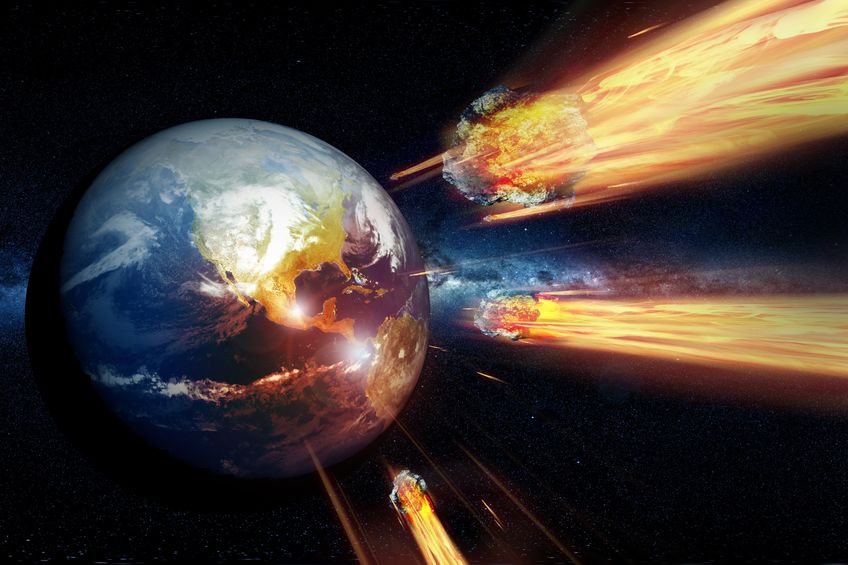Scientists warn, Earth unprepared for surprise meteor strike

Humans are at the mercy of the cosmos. Not only is the Earth our only home (at the moment), we also don’t have the means to protect it. Image INQUIRER.net Stock Photo
Humankind stands naked and in the mercy of a stray asteroid or comet that may come crashing down on Earth. One large enough piece of astral rock could spell the difference between the continued existence of the human species and extinction.
According to Dr. Joseph Nuth, a researcher with NASA’s Goddard Space Flight Center, “The biggest problem, basically, is there’s not a hell of a lot we can do about it at the moment,” reports The Guardian.
Nuth noted during his speech at the annual meeting of American Geophysical Union that while dangerously large asteroids or comets are quite rare, there are the exceptions. “But on the other hand they are the extinction-level events, things like dinosaur killers, they’re 50 to 60 million years apart, essentially. You could say, of course, we’re due, but it’s a random course at that point.”
As for comets, there have been some close calls in the past. In 1996, a comet flew into Jupiter. In 2014, another comet brushed past Mars in what can be considered as “within cosmic spitting distance.” This one was discovered only 22 months before its encounter with Mars.
To put things into perspective, it currently takes five years to launch a spacecraft. Twenty two months of warning simply would not suffice to ensure the survival of the human species. Because of this, Nuth suggested that having a rocket in storage that’s ready to launch, “could mitigate the possibility of a sneaky asteroid coming in from a place that’s hard to observe, like from the sun.”
Another method suggested by Dr. Cathy Plesko, a scientist at Los Alamos National Laboratory, is called a “kinetic impactor.” It is a giant cannonball in layman’s terms.
“Cannonball technology is actually very good technology; intercepting an object at high speed actually ends up being more effective than high explosives.”
At the end of the day, even if these countermeasures were made, scientists lack sufficient data to assure everyone that these ‘defense systems’ will work 100 percent. One thing’s for sure — someone needs to spearhead development for protecting the planet from external threats, as soon as possible. Alfred Bayle